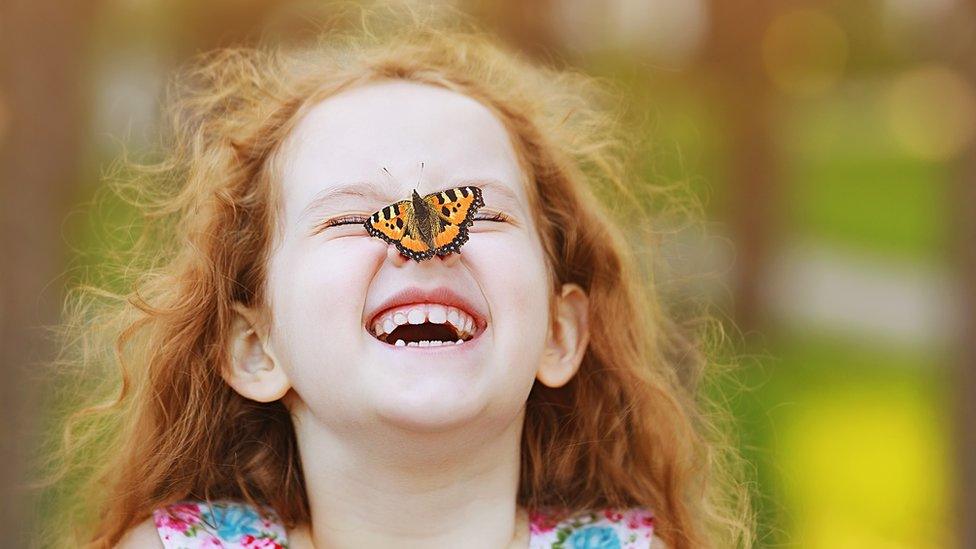Scientists believe insects may have feelings
- Published
- comments

Scientists believe insects may experience conscious experiences
Whether it's cats and dogs or chimps and elephants - it's often suggested that many mammals are capable of experiencing some level of feelings.
Now a group of scientists claims that bees, flies and fish may have feelings too, following a number of research projects looking at how the brains of animals work.
This group has signed a document called 'The New York Declaration on Animal Consciousness' and is now calling for us to rethink our relationship with the animal world.
It wants people like politicians and scientists to think about how the decisions they make may affect them.
What is 'conscious experience'?
It means you're aware of the world around you and in some cases experience sensations like joy.
For example, if you have a pet dog that you play with, you can tell throwing a ball or giving them a treat is making them happy by watching their reaction - maybe they're wagging their tail.
What species may have these feelings?
Researchers say there is "strong scientific support" that mammals and birds have animal consciousness.
They now believe there's a "realistic possibility" this could also include animals with a spine called vertebrates, so reptiles, amphibians and fish.
The group believes it may also apply to invertebrates, so those without a spine, like insects, crabs and molluscs too.
Cleaner wrasse fish may be able to recognise photographs of themselves
What studies have been done?
As they can't talk, scientists have to look at how species behave instead.
For example, the study 'Curiosity in zebrafish' shows evidence the fish were interested when new objects were put into their tanks.
Researchers from Queen Mary University of London found bumble bees interact with objects "just for fun".
While a team at Osaka City University found evidence that a cleaner wrasse fish appeared to recognise its own reflection in an underwater mirror and even in a photograph.
The scientists hope more research will now be done to help us learn about different species and how we care for them.
- Published23 August 2022
- Published14 March 2023
- Published8 January
